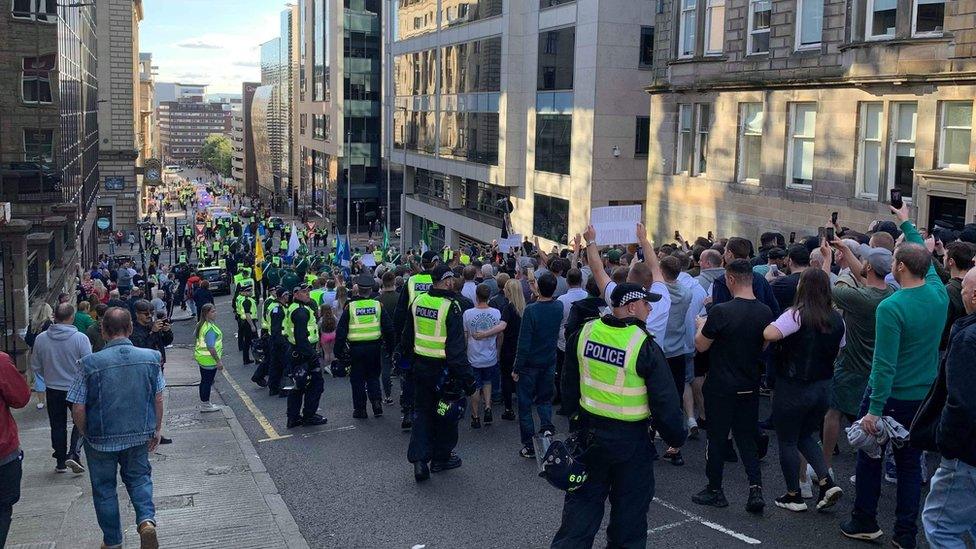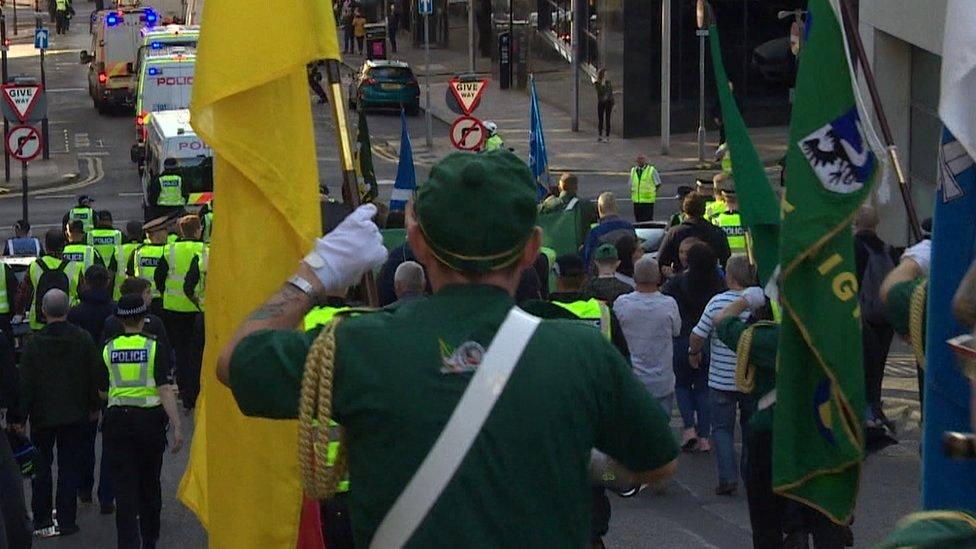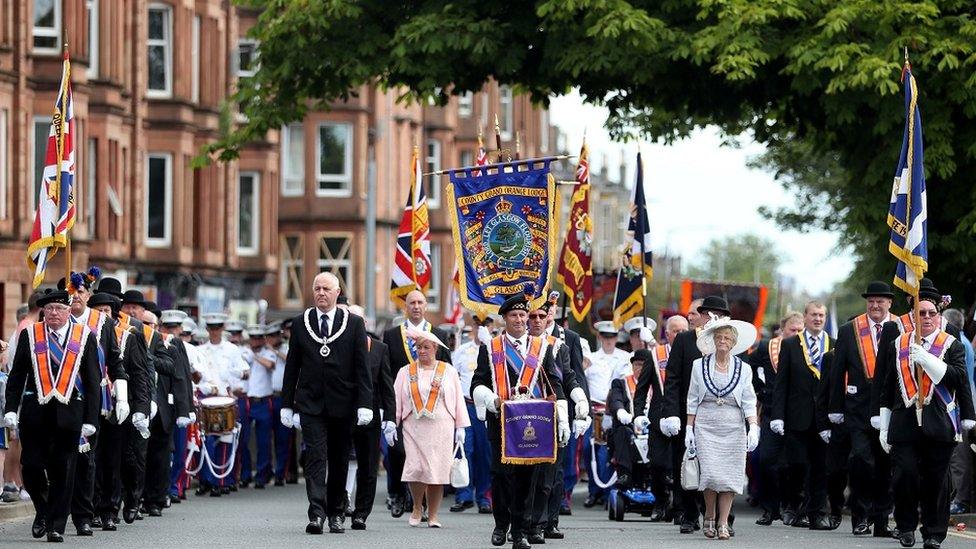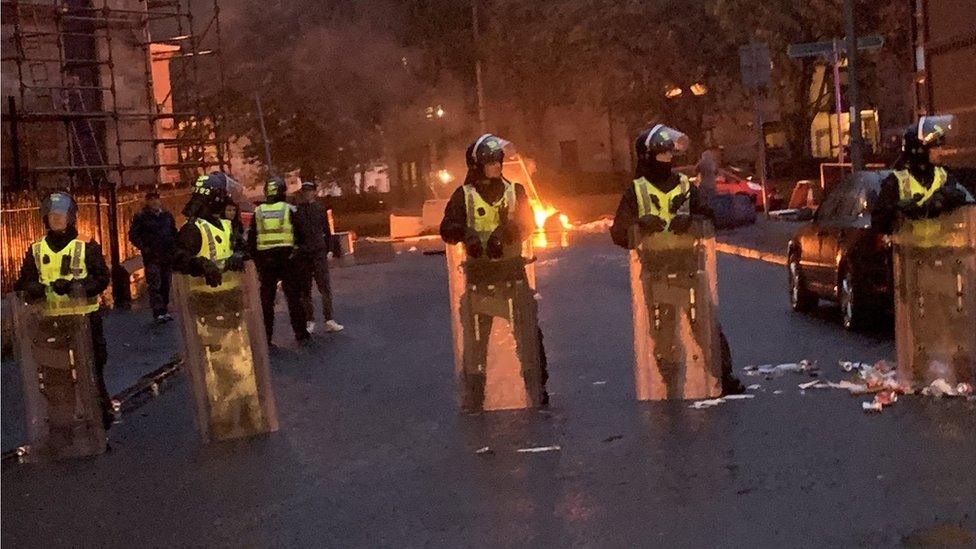Policing Glasgow parades 'not sustainable'
- Published

About 1,000 people were involved in marches and counter protests in the city in recent weeks
Police Scotland's chief constable has said policing republican and loyalist parades in Glasgow is unsustainable.
Iain Livingstone said such events presented a "significant challenge" as officers had to be pulled from across the country to monitor them.
The Scottish Police Authority board heard that on one day 600 officers were deployed to the city centre.
The operation on 7 September - when one officer was hurt by a pyrotechnic - cost about £176,000.
It came after violent clashes in Govan the previous weekend.
Officers have arrested 14 people in connection with a variety of offences during recent parades.

A counter-protest on the Broomielaw as a republican march was held in Glasgow this month
Chief Constable Iain Livingstone told the board, external on Monday that one officer who was injured while policing an event had come from Dunfermline in Fife.
He continued: "In terms of resources - is it sustainable? No it's not. In terms of the number of officers there, the capability of the single service comes to bear."
'Growing trend'
Mr Livingstone also highlighted how the force had experienced more than a 20% increase in attacks on officers, specifically in the west of Scotland.
He said: "The recent manifestation of these marches, walks and protests seem to me to be part of a growing trend where our officers are coming under attack and it's utterly unacceptable for me.
"I can't reiterate enough it's not part of the job. We as a service will do everything we need to do - but we need the support of society, we need the support of the criminal justice system and we need the support of every citizen in Scotland to say their fellow citizens - the police officers and staff who are protecting them - need protected as well."

There were counter-demonstrations at republican march earlier this month
Deputy Chief Constable Will Kerr later said that six officers were injured while policing a Rangers vs Feyenoord match at Ibrox on 19 September.
At the time the force said trouble had erupted in the away section.
Deputy Chief Constable Kerr said that while policing parades and football matches, officers faced many types of assault, including coin throwing, spitting, kicking, punching and stone throwing.
He added: "That is just wholly unacceptable, it cannot be right in 2019. We do need to have a clear hard look at ourselves as to whether we think that's acceptable."
Could parades be banned?
In the past five years, the majority of the processions have been by loyalist organisations such as the Orange Order (142 this year), the Apprentice Boys of Derry (20 this year), and the Royal Black institutions (20).
There have also been 16 marches this year classed as republican.
Following violence in late August, Glasgow City Council threatened it would "push the law" to protect the public.

The Orange Order accounts for the highest number of marches in the city
The council's public processions committee allowed two republican marches to take place on 7 September but did ban a number of parades planned for 14 and 15 September.
A demonstration against the move was held peacefully in George Square.
Scottish Police Authority board member David Crichton questioned the force on whether it was advising local authorities on parades.
Chief Constable Livingstone said that while Police Scotland did not ban such events, it did advise on public safety and disorder.
He continued: "We are one of many factors - there's an economic disruption, disruption to transport etc.
"So society as a whole needs to have a look and needs to decide where the balances are to be struck in terms of impact on civic life and the rights of many others whose Saturday afternoons are disrupted by these issues and the rights of those who wish to march or to protest."
- Published21 September 2019

- Published14 September 2019
